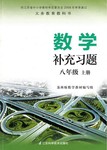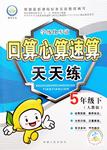题目内容
In the early 1950s, researchers found that people scored lower on intelligence tests if they spoke more than one language. Research in the sixties found the opposite. Bilingual people scored higher than monolinguals, people who speak only one language. So which is it?
Researchers presented their newest studies last month at a meeting of the American Association for the Advancement of Science. The latest evidence shows that being bilingual does not necessarily make people smarter. But researcher Ellen Bialystok says it probably does make you better at certain skills.
Ellen Bialystok said, “Imagine driving down the highway. There’re many things that could capture your attention and you really need to be able to monitor all of them. Why would bilingualism make you any better at that?”
And the answer, she says, is that bilingual people are often better at controlling their attention — a function called the executive control system.
Ms. Bialystok is a psychology professor at York University in Toronto, Canada. She says the best method to measure the executive control system is called the Stroop Test. A person is shown words in different colors. The person has to ignore the word but say the color. The problem is that the words are all names of colors.
Ellen Bialystok said, “So you would have the word blue written in red, but you have to say red. But blue is so salient(显著的), it’s just lighting up all these circuits(电路) in your brain, and you really want to say blue. So you need a mechanism(机制) to override that so that you can say red. That’s the executive control system.”
Her work shows that bilingual people continually practice this function. They have to, because both languages are active in their brain at the same time. They need to suppress(抑制) one to be able to speak in the other.
This mental exercise might help in other ways, too. Researchers say bilingual children are better able to separate a word from its meaning, and more likely to have friends from different cultures. Bilingual adults are often four to five years later than others in developing dementia or Alzheimer’s disease.
- 1.
What’s the best title of the text?
- A.Bilingual People, Smarter
- B.Monolingual People, Smarter
- C.Bilingual People, Longer Lives
- D.Bilingual People, Better at Some Skills
- A.
- 2.
The underlined word “override” in Paragraph 6 probably means ____.
- A.pay attention to
- B.take no notice of
- C.take an interest in
- D.take care of
- A.
- 3.
In the Stroop Test, supposing you have the word yellow written in white, you will have to say ____.
- A.white
- B.yellow
- C.blue
- D.red
- A.
- 4.
Which group of people can most likely pass the Stroop Test?
- A.People who can speak only Chinese.
- B.People who can speak only Japanese.
- C.People who can speak more than one language.
- D.People who can speak only English.
- A.
- 5.
Which of the following statements is FALSE according to the text?
- A.A bilingual child is better at separating a word from its meaning.
- B.A bilingual child can more easily make friends with a foreign child.
- C.Bilingual people are more able to monitor several things at the same time.
- D.It’s not possible for bilingual people to develop Alzheimer’s disease.
- A.
文章讲述的是会双语的人,在某些方面更擅长,文章中指的是一种测试
1.主旨大意题,文章讲述的是会双语的人,在某些方面更擅长。
2.猜测词意题,根据前面的you really want to say blue和上一段的The person has to ignore the word but say the color. The problem is that the words are all names of colors可知,你需要忽视你想说的
3.实施细节题,根据第五段的A person is shown words in different colors. The person has to ignore the word but say the color.可知,要说单词的颜色,而不是说单词
4.实施细节题,根据倒数第二段的Her work shows that bilingual people continually practice this function可知
5.实施细节题,根据最后一段的Bilingual adults are often four to five years later than others in developing dementia or Alzheimer’s disease可知,D是错误的

 补充习题江苏系列答案
补充习题江苏系列答案 学练快车道口算心算速算天天练系列答案
学练快车道口算心算速算天天练系列答案D
Parties, iPods, concerts, movies, TV shows, video games, traffic. All of these things of the modern world make life entertaining and enjoyable. But our 21st-century lifestyle is also loud and, if we don’t take notice, it can have an effect on our hearing.
Most teenagers don’t think about hearing loss. But if you experience any of the following symptoms(症状), you may already be hearing damaged: you make efforts to hear normal talk, you have to turn up the TV or radio so high that others complain, you watch other people’s expressions to understand what they are saying, you ask people to repeat themselves, you misunderstand what people are saying or you hear ringing in your ears.
iPods and other MP3 players are as common as the clothes you wear, and just as fashionable. But if you turn up an iPod to more than 60 percent of its maximum volume(最大音量), and listen to music for more than an hour, you are asking for trouble. And, it does not matter if the music you play is classical, rock or heavy metal.
Some researchers find that young people who break the so-called 60-percent/60-minute rule in listening to iPods are at the risk of suffering hearing loss.
Why is an iPod dangerous? With ear buds placed directly in the ear canal and high-volume music played over a long period of time, it’s like working in a loud factory all day, being a maintenance(修理)person under a jet airplane or using a jackhammer(手提钻)on a building site.
Similarly, iPod music can cause a short time or permanent(永久的)hearing damage. A loud iPod can cause a ruptured(破裂的)eardrum and, over time, may cause permanent damage to the tiny hairs in the inner ear. If these tiny hairs are damaged, they cannot effectively send sounds to the auditory nerves(听觉神经)that connect to the brain. If this happens, hearing loss becomes permanent.
【小题1】Which of the following shows that you are suffering hearing loss?
| A.You are interested to listen to others’ talking. |
| B.You have to read others’ expressions to understand them. |
| C.You can only understand others over the phone. |
| D.You always think you hear the ringing of the phone. |
| A.Listen at least an hour every time. |
| B.Turn up the volume to the highest level. |
| C.keep the sound lower than 60% of its highest volume. |
| D.Choose classical, rock or heavy metal music. |
a. The eardrum is broken.
b. The auditory nerves cannot receive sounds.
c. Tiny hairs are damaged.
d. Ear buds are placed directly in the ear canal.
e. High-volume music is played over a long time.
| A.d-a-c-b-e | B.e-c-a-b-d | C.b-c-a-d-e | D.d-e-a-c-b |
| A.music that teenagers like | B.hearing problems caused by the loud world |
| C.ways that teenagers enjoy music | D.dangerous modern lifestyles of teenagers. |